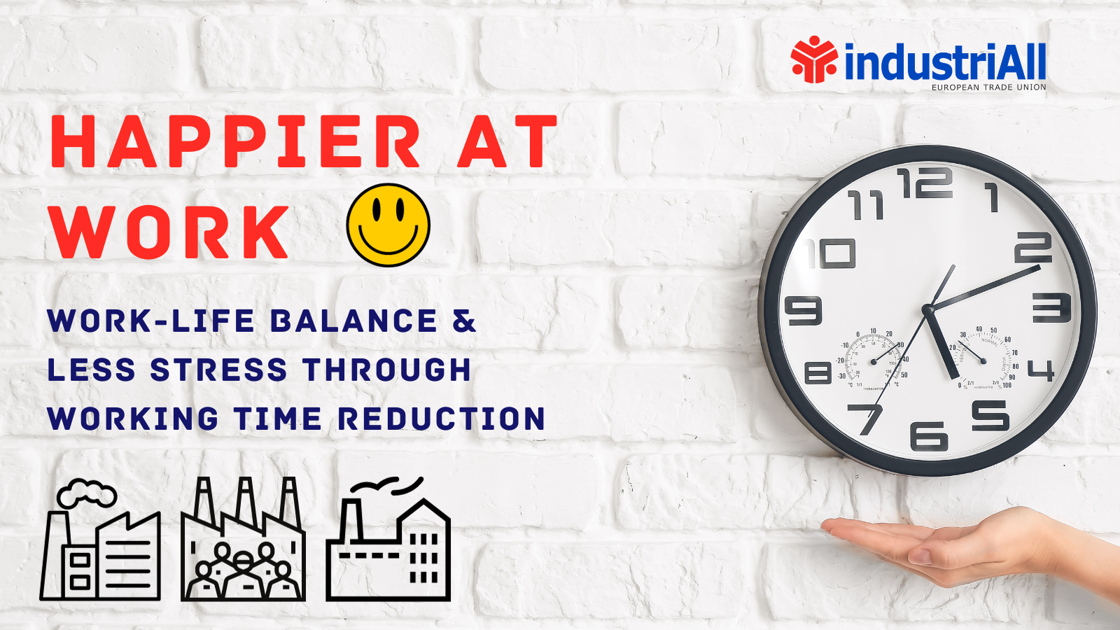Despite the current record tightness of the European labour market, the 4-day week continues to attract attention and debate. Policymakers and employers argue that calls for a 4-day week are misplaced, given that the demand for skilled labour is at a record high.
Trade unions, however, argue that reducing working time can be part of the solution to a tight labour market. This is because it can significantly increase the attractiveness of jobs by improving work-life balance. This could be important in attracting women, workers with caring responsibilities, young people or others into sectors where there are shortages.
Despite employers' attempts to portray the current tight labour market as a labour shortage crisis with migration as the only solution, numerous reports published by Eurofound, the OECD, the IMF, CEDEFOP and the European Commission show that the main causes of the current record shortages are poor quality and unattractive jobs. A recent ETUI study backs this up by showing that sectors with the worst labour shortages pay on average 9 per cent less than sectors where it is easier to recruit.
In its latest position paper on the issue, industriAll Europe presents a detailed analysis of the skills situation across Europe, focusing on industrial sectors. Our paper highlights that migration can only be a short-term 'quick fix' to this complex problem. A long-term sustainable solution requires a more holistic approach based on industrial policy, employment and social policy, active labour market policy, education and training policy and collective bargaining. Wage growth, improved working conditions (including through reduced working hours and better work-life balance) and an individual right to collectively negotiated training are all part of the solution.
Reducing working hours could also make a positive contribution to tackling Europe’s high levels of work-related stress. Europe is not only experiencing record tight labour markets, but also a burnout crisis, with stress at work increasing significantly in recent years. According to a recent EU-OSHA survey, 44 per cent of workers say that their stress at work has increased since the pandemic, and 46 per cent say that they are under severe time pressure or work overload. Several work-related health problems, often associated with stress, are also reported by a large proportion of workers: 30 per cent reported at least one health problem (general fatigue, headache, eye strain, muscle problems or pain) caused or made worse by work.
Once again, working time reductions negotiated by trade unions and employers through collective agreements are key. The study by the European Trade Union Institute in cooperation with industriAll Europe shows that pilot projects testing working time reductions in the form of the '4-day week' have resulted in workers reporting less stress, fatigue and burnout, and an overall positive effect on mental and physical health and a better work-life balance. The situation has been a win-win for both workers and employers, with companies reporting improved productivity, reduced health care costs, lower staff turnover and better chances of recruiting new staff.
Isabelle Barthès, Acting Joint General Secretary of industriAll Europe, said:
"We are disappointed that, despite all the evidence, the European Commission seems to be listening mainly to employers when it comes to addressing the tight labour market. The recently unveiled EU Talent Pool initiative, which puts labour migration from third countries at the centre of solving skills shortages, only plays into the hands of employers looking for a quick fix to the problem.
“As trade unions, we will continue to propose sustainable, data-driven solutions, not quick fixes.
“Europe needs investment in quality jobs and training to address the current shortages, as well as a reduction in working hours to avoid a future health crisis caused by disproportionate stress at work".
Factsheets : 1 2
Study: The European Trade Union Institute (ETUI) has published a study by Dr. Torsten Müller, which analyses working time trends in the manufacturing sectors in Europe, focusing particularly on the reality in the workplaces of industriAll Europe’s affiliates. The study is based on the most recent academic literature, as well as on reports by industriAll Europe affiliates.
